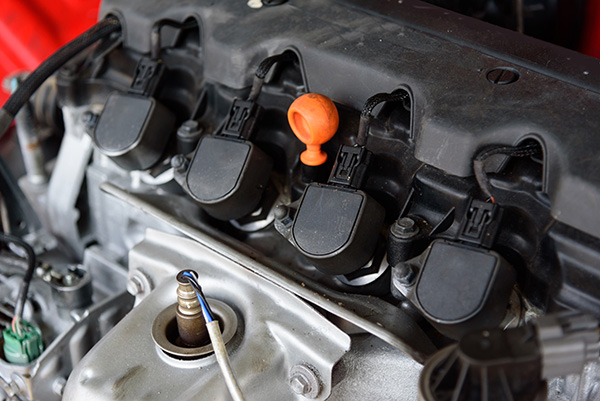
When it comes to vehicle maintenance, some issues are more critical than others. One component that often flies under the radar until it's too late is the ignition coil. This small but mighty part plays a crucial role in your car's performance, converting the battery's voltage into the high voltage needed to ignite the fuel. But how do you know when your ignition coil is failing? Let's explore the signs and what to do if you suspect a problem.
Common Symptoms of a Bad Ignition Coil
Recognizing the early signs of a failing ignition coil can help you address the issue before it becomes a bigger problem. Here are the most common symptoms to watch out for:
1. Engine Misfires and Rough Idling
One of the first signs of a bad ignition coil is engine misfires. If your engine is misfiring, you might notice a jerking motion while driving, especially when accelerating. This happens because the ignition coil isn't providing enough voltage to the spark plugs, resulting in incomplete combustion.
Rough idling is another indicator. If your car feels shaky or unstable when idling, it could be due to a faulty ignition coil.
2. Poor Fuel Economy
A failing ignition coil can cause a drop in fuel efficiency. When the coil isn't working correctly, the engine may not burn fuel efficiently, leading to increased fuel consumption. If you find yourself filling up the tank more often than usual, it might be time to check your ignition coil.
3. Difficulty Starting the Car
If your car is hard to start or doesn't start at all, the ignition coil could be the culprit. The coil needs to generate a high voltage to start the engine. When it fails, starting your car becomes a challenge.
4. Check Engine Light Is On
The check engine light is a catch-all warning for many issues, including ignition coil failure. If this light comes on, get your car diagnosed by a professional. At Stang Auto Tech, we can pinpoint the exact problem and recommend the best course of action.
Diagnosing a Faulty Ignition Coil
Here's how our technicians diagnose the issue:
1. Using an OBD-II Scanner
An OBD-II scanner can read trouble codes from your car's computer. If the scanner indicates a misfire or a related ignition issue, it could point to a faulty ignition coil.
2. Visual Inspection
Inspecting the ignition coil for visible damage, such as cracks or burns, can also help diagnose the problem. These physical signs often indicate that the coil is failing and needs replacement.
3. Swap Test
Another method is to perform a swap test, swapping the suspected bad coil with a good one from another cylinder. If the problem moves with the coil, the culprit is found.
Preventative Maintenance for Ignition Coils
Regular maintenance is key to avoiding failing ignition coil issues. Here are some tips:
1. Regularly Replace Spark Plugs
Old or worn-out spark plugs can strain the ignition coil. To keep the ignition system in top shape, ensure you replace spark plugs at the recommended intervals.
2. Address Engine Problems Promptly
Ignoring engine issues can lead to further damage, including to the ignition coil. Address any engine problems as soon as they arise to prevent additional wear and tear.
What to Do If You Suspect Ignition Coil Failure
If you suspect your ignition coil is failing, don't wait. Here's what you should do:
- Get a Professional Diagnosis: Take your car to a trusted technician like Stang Auto Tech. We can accurately diagnose the issue and recommend the right solution.
- Replacement: If the ignition coil is indeed failing, replacing it promptly is needed to avoid further engine damage.
- Follow Up with Maintenance: After replacing the coil, follow up with regular maintenance checks to ensure your ignition system stays in good condition.
Is your car showing signs of ignition coil failure? Contact Stang Auto Tech now for a professional assessment and repair!